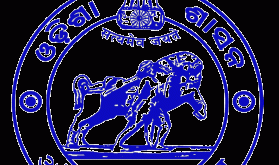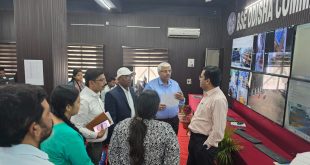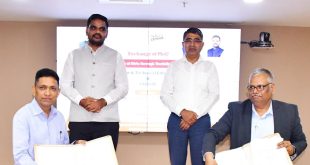Bhubaneswar: Odisha Tourism minister Jyoti Prakash Panigrahi said that the state needs a two-pronged approach, equally focussing on revival and growth plan of the tourism sector.
“The focus would be on domestic tourism and increasing footfalls from the neighbouring states. Once the road traffic is operationalised, we could focus on family and road-based tourism,” he said.
He was addressing a webinar titled ‘Tourism Insight and Strategies to the Covid-19 Crisis’, which was organised by the Confederation of Indian Industry (CII).
Senior industry leaders from the state and across the country converged to discuss the implications of the disruption caused by the pandemic, also contemplating the road ahead for the tourism and hospitality sectors.
There was an underlying consensus on the need for visible and proactive government support on financial and policy matters to enable businesses to manage the disruption and safeguard them from the side-effects of the unprecedented crisis.
Industry stakeholders concurred on a possible change in the consumer behaviour, post the COVID-19, wherein sparsely populated destinations were going to preferred by tourists, and Odisha was at the forefront of capitalising on such a shift.
The Tourism Minister said that tourism needed to factor in social distancing and other precautionary measures as mandated to ensure health and well-being.
Jyoti Prakash Panigrahi drew parallels with Cyclone Fani, pointing out that the state government had managed to restore normalcy in record time after being ravaged by the coastal cyclone, assuaging concerns on the road ahead for the tourism industry.
He stressed that minimising the loss of lives was the foremost priority for the state government, adding that 39 COVID-19 hospitals had been established to attend to the populace suffering from the infection.
The Odisha government was spending significant sums on welfare measures to minimise the impact of the pandemic on the lives and livelihood of the people, the minister said.
He iterated his government’s commitment toward the tourism and hospitality sectors, noting that the Chief Minister was “very keen” on taking them forward in his fifth term.
“The budgetary allocation for tourism was increased by five times in this state year’s budget,” he pointed out.
He said that the state’s visibility as an attractive tourism destination had grown profoundly during his short yet eventful tenure.
He called Odisha “the only kept secret.”
He advised business leaders to devise risk management strategies to prepare their businesses for such abrupt disruptions in the future.
J K Mohanty, CMD, Swosti Group, mooted releasing the additional funds available with PSUs to tide over the crisis and address the liquidity crunch staring the industry.
He expressed concern on the health of the sector, advocating a systematic government intervention to safeguard employment and suggested a pay-cut or loss of jobs for those associated with the industry, was certain without clarity on revival plans.
He asked for extending the moratorium on loans to a year and forgoing interest on loans for at least six months and listed out the continuity of businesses as the most critical challenge.
Navin Berry, Founder and CEO, BITB Conclaves, moderated the webinar and highlighted the importance of going local and wondered if the pandemic had emerged as the “anti-thesis” to globalisation.
He noted that domestic tourism was going to be the mainstay of businesses in the foreseeable future.
PP Khanna, President, Domestic Tour Operators of India, stressed that a bailout package by the government was the only way forward.
He pointed toward the inability of small-scale tour operators in paying remuneration to their staff and noted that there was no possibility of tourism returning to normalcy immediately after the lockdown was lifted.
He also shared that several apex industry forums had reached out to the highest echelons of policymakers for a concrete intervention to minimise the unprecedented damages.
Souvagya Mohapatra, Executive Director, Mayfair Hotels and Resorts Limited, highlighted how the industry was the first to be impacted by the government advisory, restricting air and rail travel, also stressing that it was going to be the last sector to recover from the development.
The government’s standard operating procedures and every detailing on tackling the issue was going to invariably dictate the sector’s road to recovery, he believed.
Suresh Nair, General Manager, India, Sri Lanka and Bangladesh, AirAsia Group, hoped that the airline would operate on half its capacity by the mid-June, sharing that the low-cost carrier had very recently resumed domestic flights in Malaysia and Thailand.
“Therefore, it is a question of when rather than how,” he said.
InterGlobe Hotels President and CEO J B Singh complimented the state for its stable and consistent policymaking, which had placed Odisha as an attractive destination for investment.
He believed that the state had the potential to attract a large chunk of domestic footfalls and advised the government to create a “marketing plan and standard operating procedures” to take the first affirmative step to build consumer confidence, needed to drive the sector.
 Update Odisha-Latest Odisha News I Breaking News Get latest news on Odisha, Govt. Jobs, OSSC, OPSC, Entertainment, Crime, Sports, and Education
Update Odisha-Latest Odisha News I Breaking News Get latest news on Odisha, Govt. Jobs, OSSC, OPSC, Entertainment, Crime, Sports, and Education



